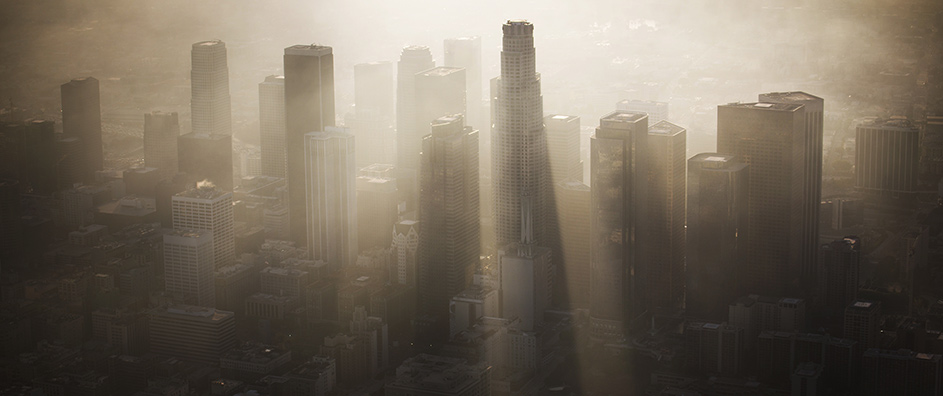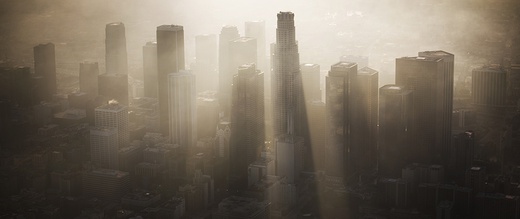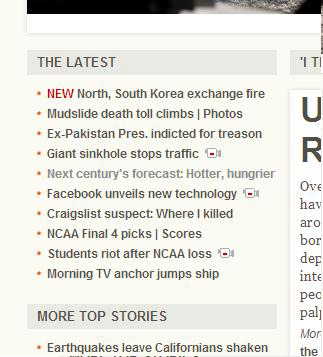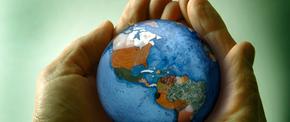The views expressed in our content reflect individual perspectives and do not represent the official views of the Baha'i Faith.
 The United Nations Intergovernmental Panel on Climate Change (IPCC) recently released a summary for policymakers of their forceful 2013 report on the devastating impact of climate change, and how communities can adapt to the challenges ahead. The conclusions are brutal. Perhaps never before has the dire need for global unity and service to humanity, enunciated by Baha’u’llah over a century ago, been so great.
The United Nations Intergovernmental Panel on Climate Change (IPCC) recently released a summary for policymakers of their forceful 2013 report on the devastating impact of climate change, and how communities can adapt to the challenges ahead. The conclusions are brutal. Perhaps never before has the dire need for global unity and service to humanity, enunciated by Baha’u’llah over a century ago, been so great.
The report speaks of rising sea levels, melting glaciers, more extreme weather events, shrinking freshwater supplies, reduced crop yields, extreme droughts in some areas, extreme flooding in others, growing wildfires, the acidification of the oceans, the thawing of arctic permafrost, and other changes in the environment that directly harm human society or contribute to other dangerous ecological trends. It speaks of ways that communities will have to adapt to a changing environment, many of which will be cumbersome and expensive. The poor and marginalized will face the greatest burdens in the decades ahead.
In our media-saturated world, we’re all bombarded by information from every direction, each one jostling for our finite attention. But this report is designed to be seen as important. It’s not published by someone looking to pursue his or her own selfish interests. It’s published by an international panel overseen by the United Nations, a body representing all the Earth’s peoples. And its content is not the uninformed speculation of just anyone. It’s based on research compiled from thousands of peer-reviewed studies. Over 1,700 scientists helped craft the document, a statement designed to set the gears of social change in motion. But unfortunately a collective unwillingness to consider the dangers ahead stands in the way.
Here’s an example. I checked over at a prominent international news outlet that I’m sure you’ve heard of to see how they’re covering this important report. The big headline at the top of the page read “Orange objects turn out to be fishing equipment,” the latest update on the missing flight MH370 that disappeared on March 8th. Scrunched over on the left side between “Giant sinkhole stops traffic” and “Facebook unveils new technology” I found the page’s lonely story on the IPCC report: “Next century’s forecast: Hotter, hungrier.” You can’t make this stuff up. I’ve got the screenshot to prove it. This is what a civilization in denial looks like.
The world’s climate functions as a global whole. It ignores national boundaries and is indifferent to any sense of cultural separateness. It places demands on us that exceed outmoded political institutions based merely on national identity. Thinking primarily of advancing one’s own material interests has worked well for those who have benefitted the most from the 20th century model of economic development, based as it is on the burning of fossil fuels. But that mindset is not well-suited to the challenges ahead. Greenhouse gas emissions will have to be brought down. And assisting vulnerable populations to adapt will require the assistance and material support of wealthy nations. The collective life of humanity is too interconnected to think that some will be safe, let alone happy, if only they wall themselves off from the turbulence around them. We will need to work together within a common framework that privileges no group over any other. Care, generosity, and mutual assistance must be globalized.
Many suppose that technology is humanity’s last great hope to stave off the impending crisis. Remedies like renewable energy, sea walls, and carbon sequestration all have their place. But more importantly, humanity must consider the power of unity. The Baha’i teachings say:
The epoch has begun wherein all native lands will be conjoined in one great human family. For all mankind shall dwell in peace and security beneath the shelter of the great tabernacle of the one living God. – Abdu’l-Baha, The Promulgation of Universal Peace, p. 370.
Unity is not just a goal. It is a motive force and collective means for transitioning to the world civilization envisioned by Baha’u’llah. It is the foundation which must undergird any and all efforts to respond to climate change.


















Comments
Sign in or create an account
Continue with Facebookor